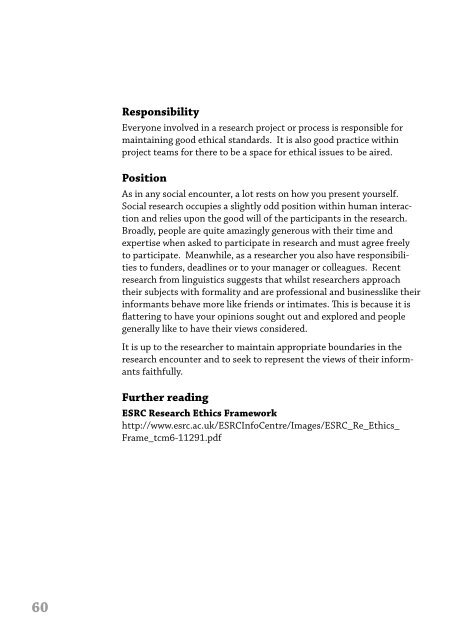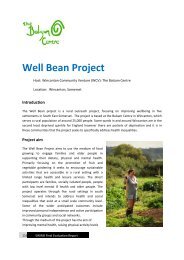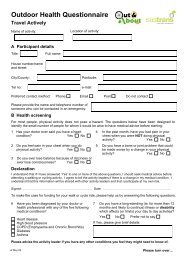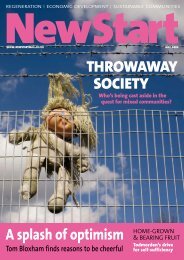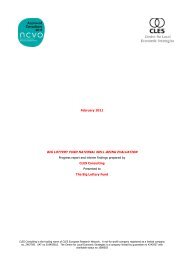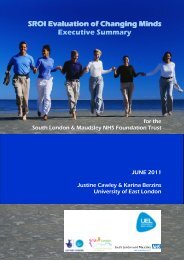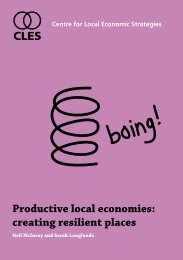Research Methods Handbook.pdf - CLES
Research Methods Handbook.pdf - CLES
Research Methods Handbook.pdf - CLES
You also want an ePaper? Increase the reach of your titles
YUMPU automatically turns print PDFs into web optimized ePapers that Google loves.
GlossaryResponsibilityEveryone involved in a research project or process is responsible formaintaining good ethical standards. It is also good practice withinproject teams for there to be a space for ethical issues to be aired.PositionAs in any social encounter, a lot rests on how you present yourself.Social research occupies a slightly odd position within human interactionand relies upon the good will of the participants in the research.Broadly, people are quite amazingly generous with their time andexpertise when asked to participate in research and must agree freelyto participate. Meanwhile, as a researcher you also have responsibilitiesto funders, deadlines or to your manager or colleagues. Recentresearch from linguistics suggests that whilst researchers approachtheir subjects with formality and are professional and businesslike theirinformants behave more like friends or intimates. This is because it isflattering to have your opinions sought out and explored and peoplegenerally like to have their views considered.It is up to the researcher to maintain appropriate boundaries in theresearch encounter and to seek to represent the views of their informantsfaithfully.Further readingESRC <strong>Research</strong> Ethics Frameworkhttp://www.esrc.ac.uk/ESRCInfoCentre/Images/ESRC_Re_Ethics_Frame_tcm6-11291.<strong>pdf</strong>ABCAction <strong>Research</strong>Action research is “learning by doing” - a group of people identify aproblem, do something to resolve it, see how successful their effortswere, and if not satisfied, try again. Action research is known by manyother names, including participatory research, collaborative inquiry,emancipatory research, action learning, and contextural action research,but all are variations on a theme.AttritionA reduction in the number of participants during the course of a study.If more participants withdraw from one group than another group, thiscan introduce bias and threaten the internal validity of the research.AttributionThe association or disassociation of a particular attribute with a particularpopulation unit.BiasA loss of balance and accuracy in the use of research methods. It cancreep into research via sampling, while interviewing, in the design ofquestions, or in the way data are analysed and presented. Bias meansthat the research findings will not be representative of, or generalisableto, a wider population.Biographical <strong>Research</strong>Primarily qualitative, and includes gathering/ using data in the form ofdiaries, stories and life histories.Categorical variableA variable with discrete values (e.g. a person’s gender or a person’smarital status).Causal relationshipA relationship where variation in one variable causes variation inanother.60 61


